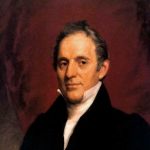One afternoon a church member met me in my study to say that he and his family was leaving the church. He offered this explanation: “You know that I like to be around things that are a success. And this church is not a success. So we’re leaving.” With that, he left.
Realistically, if we had had five or ten times the number of people, ministries, and finances, he might have called our church a success. So would others. But is that what success is about? In a worldly way, yes, multiplication of nickels and noses is the measure of success. Admittedly, I love to see our numbers and resources multiplied! But Jesus has a different measuring stick for the church not chained to statistics. Quite simply, Jesus measures the church by its love.
Rather than measuring His body by its statistical success, Jesus measures it by the way that we love one another. “By this all men will know that you are My disciples, if you have love for one another” (John 13:35). We might easily attempt to substitute service, great deeds, and notable oratory for love because love requires the most of us by calling for us to act contrary to human nature. Love is the way of the cross, the way of humility, and the way of selflessness. This kind of love is ultimately rooted in the selfless, sacrificial giving of Jesus Christ on our behalf.
Paul had something to say about this theme in 1 Corinthians thirteen, when he offered three illustrations that contrasted faulty measurements for the church and gospel-driven love. This kind of love is not simply an attitude of mind, but much more, an act of giving freely of yourself in humility and affection on behalf of others—even as Jesus did at the cross. Notice how Paul makes this application.
No Substitution in Eloquence
“If I speak with the tongues of men and of angels, but do not have love, I have become a noisy gong or a clanging cymbal” (1 Cor 13:1). While previously placing tongues at the bottom of his two lists of gifts to dissuade over-focus (12:8–10; 28), now he puts it first because of the misuse of that gift in Corinth. Here “tongues” means human languages. Then he adds tongues of angels to show the breadth of human and angelic communication. Speaking implies eloquence—the ability to communicate eternal issues with whomever I might encounter. So he’s thinking of an extraordinary, supernaturally enabled ability to speak multiple languages in Christian service. What a gift! One certainly thinks of William Carey who communicated Christ in over twenty languages!
And yet, even with such an extraordinary gift of eloquent communication, without love, “I have become a noisy gong or a clanging cymbal.” The noisy gong described a copper vessel that made a monotonous sound. Similarly, the cymbal does not range the musical scale like a piano, but rather makes one sound. Paul pictures an ongoing bong, bong, clang, clang of these two instruments. Imagine that going on for an hour or two in a sermon! How utterly annoying! Despite gifts of eloquence in multiple languages, if I “do not have love,” then it’s simply eloquent annoyance. Love takes even the feeblest words that communicate Christ and brings them to the heart with penetrating power.
No Substitution in Knowledge and in Faith
“If I have the gift of prophecy, and know all mysteries and all knowledge; and if I have all faith, so as to remove mountains, but do not have love, I am nothing” (1 Cor 13:2). Some suggest that “all mysteries and all knowledge” serves to explain the breadth of the gift of prophecy, while others would consider them as separate gifts. These gifts express holding vast, limitless knowledge of theology and every realm of study. The gift of faith to remove mountains uses a Hebrew colloquialism to imply the capacity to believe God for the impossible.
So let’s picture this kind of giftedness in the church: The ability to speak God’s word with depth, breadth, and clarity; the capacity to explain virtually anything that others might ask; and the amazing ability to see the miraculous done. Sounds wonderful!
If I have all those abilities, “but do not have love, I am nothing.” Or as Cleon Rogers translates it, “I am an absolute zero.” We would admire anyone with such sweeping ability to serve Christ’s kingdom. Yet Paul insists, without the love of Christ carrying those gifts, the one doing it is nothing—an absolute zero. Even great knowledge and faith cannot be a substitute for love.
No Substitution in Great Sacrifice
“And if I give all my possessions to feed the poor, and if I surrender my body to be burned, but do not have love, it profits me nothing” (1 Cor 13:3). The giving of possessions to feed the poor literally means to give piece by piece, handing out bread to one and to another. The one giving over his body does so for the purpose of gospel work. It’s someone who gladly lays down his life for the message of the good news. Such sacrifices we admire! But, as Graham Scroggie cautioned, “. . . the pages of Christian history show that men will fight and die for Christianity, who will not live in its spirit, which is love” [cited in Curtis Vaughan & Thomas Lea, Founders Study Guide Commentary: 1 Corinthians, 135].
Paul explains, if I do so, “but do not have love, it profits me nothing,” literally, it holds no value. While we might admire it, Jesus does not measure the church by our sacrifice, knowledge, articulation, and eloquence in multiple languages. He measures the church by the way that we love one another, even as He loves us.
Love in the Way of Christ
Here’s the reality: we cannot manufacture the kind of love that 1 Corinthians thirteen describes. We cannot attend a seminar or read a book and discover the steps to this kind of love. Instead, this kind of selfless love is found in union with Jesus Christ.
So two things are critical for the practice of Christian love in the church. First, we must have new life in Christ if we would love like Jesus. The new birth gives us a new nature so that we have a new capacity to love as one united to Christ and enabled by the Spirit. Second, if we would love, we need to see the self-giving love of God in Christ as the spring of our loving others (see John 3:16; 14:12–13; 1 John 3:16; 4:10–11; Eph 5:2).
Jesus stated it simply: “A new commandment I give to you, that you love one another, even as I have loved you, that you also love one another” (John 13:34). We are not measured by our deeds or by our numbers or by our resources. Jesus measures the church by its love.















